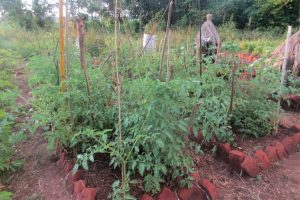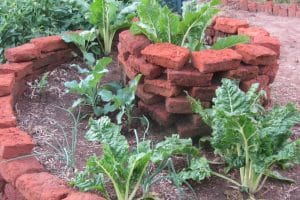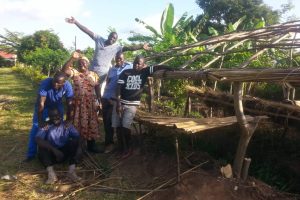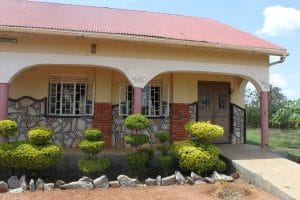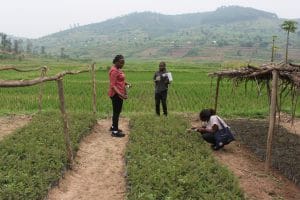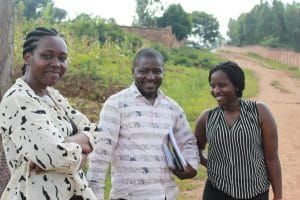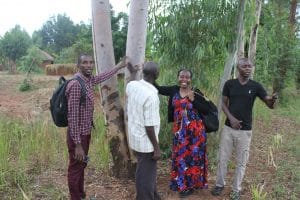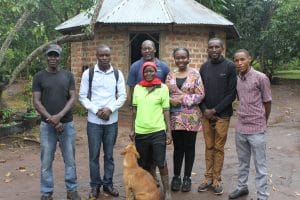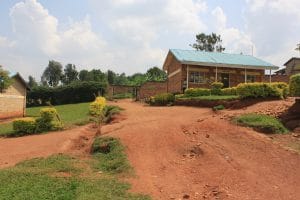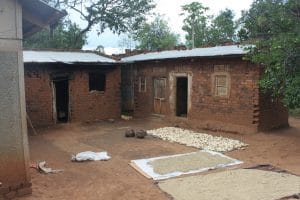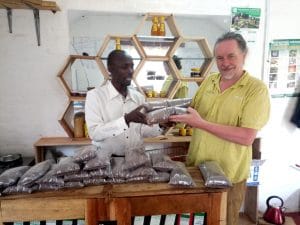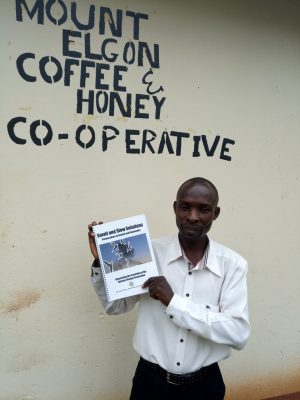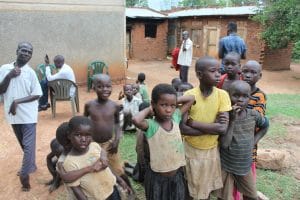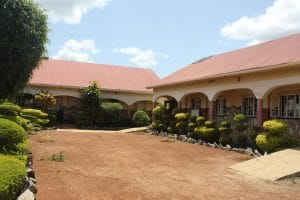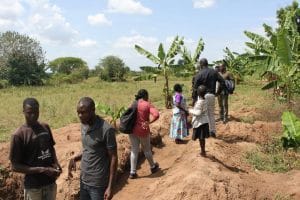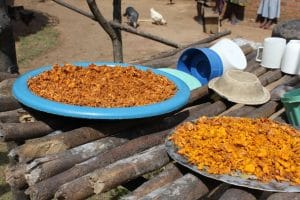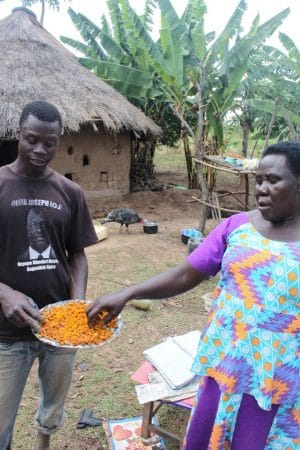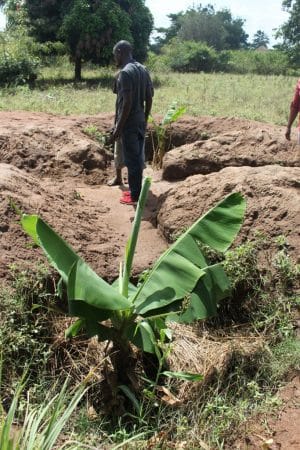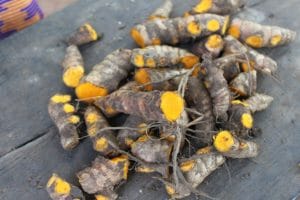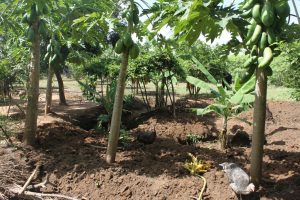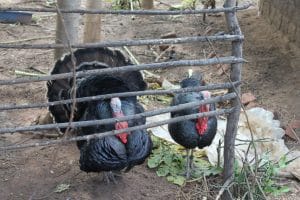In East Africa between 70% – 90% of people are subsistence farmers working small plots of land, and many of those who leave farming to find alternative employment tend to return to a subsistence farming lifestyle in retirement. The only farm training that seems to be available is for intensification, which is for larger farms that import seeds and are financed by loans. Permaculture however, has huge potential to be of great benefit to the small scale subsistence farmers.
The values in permaculture resonate strongly with traditional farming values that have lost in recent years in East Africa. There has been very little investment in subsistence farming , with the majority of farmers growing the same few crops in the same few ways which exacerbates vulnerability to price fluctuations, erratic weather and climate change. Investing in resilient farming methods, expanding crop diversity, staggering seasons, adding value and building long term fertility with organic methods is all part of the permaculture approach.
Permaculture believes in people power, with training, support and practical examples people can quickly learn new ways or rediscover old ones. Activities that work and produce a good yield tend to have a re-enforcement feedback loop built into them, hence the power of permaculture to self-replicate.
Sector 39
Since 2016 Sector39 has worked with partners in Uganda, Kenya and Rwanda to develop permaculture teachers, trainees and teaching hubs. More by accident than design, they have successfully created a vibrant and highly active network of permaculture practitioners. First, they worked through a Wales/ Africa link charity, as they developed better links with, primarily Ugandan, training networks, their plans became more ambitious. Culminating in 2018 when they successfully delivered a 7-month training program in refugee settlements in the North of Uganda, in partnership with the Norwegian Refugee Council. They explored the potentials of permaculture as a methodology for building resilience for displaced peoples. This was made possible by having previously trained more than 100 people in permaculture in the region, providing a platform of trainees to recruit from. Using a peer-to-peer learning model Sector 39 have found they can reach very diverse groups of people through a learning-by-doing approach.
Sector 39 proposed to develop a Permaculture Academy over the next three years, formalising the learning structure they have created thus far, and creating career pathways by enabling students and graduates to work on demonstration plots, as teachers and as project facilitators.
By developing the Academy, Sector 39 will be creating knowledge sharing networks and linkages. The Academy will be hub for information sharing (both hard copies and online libraries) and contact databases.
Sector 39 have already built strong links with and trained members of training hubs in 4 locations in Uganda and 1 in Kenya:
- Busoga High School, Kamuli, Uganda
- Teso Permaculture Group in Kumi, Uganda
- Bamboo nursery and forest farm, Nakaseke, Uganda
- PRI-Uganda in Buwama
- PermoAfrica Center in Homa Bay, Kenya
Sector 39 are in the process of developing 4 new training hubs by drawing on the contacts, experience and momentum built up so far. Each training hub will be supported by a 12-day permaculture course to establish the basic agreements and train team members.
In February 2020, supported by Arkleton Trust, they were able to return to Uganda where they identified the 4 new training and demonstration hubs as well as the key people who will be behind their development. These are:
The aim is that over the 3 years, these hubs become self-sustaining and will be managed by a stakeholder team on a co-operative basis.
Support from Arkleton Trust will enable Sector 39 run Permaculture Design Courses, which in turn will support the creation of these learning hubs. Support will also enable the creation of a virtual Permaculture Academy allowing dissemination of the knowledge, learnings and networks further afield.
A key goal in permaculture is to design and create systems which ultimately can be self-managing and can potentially be rolled out and replicated. In creating a range of models that can serve to inspire and amplify the spread of permaculture in the region we hope to have great impact.






